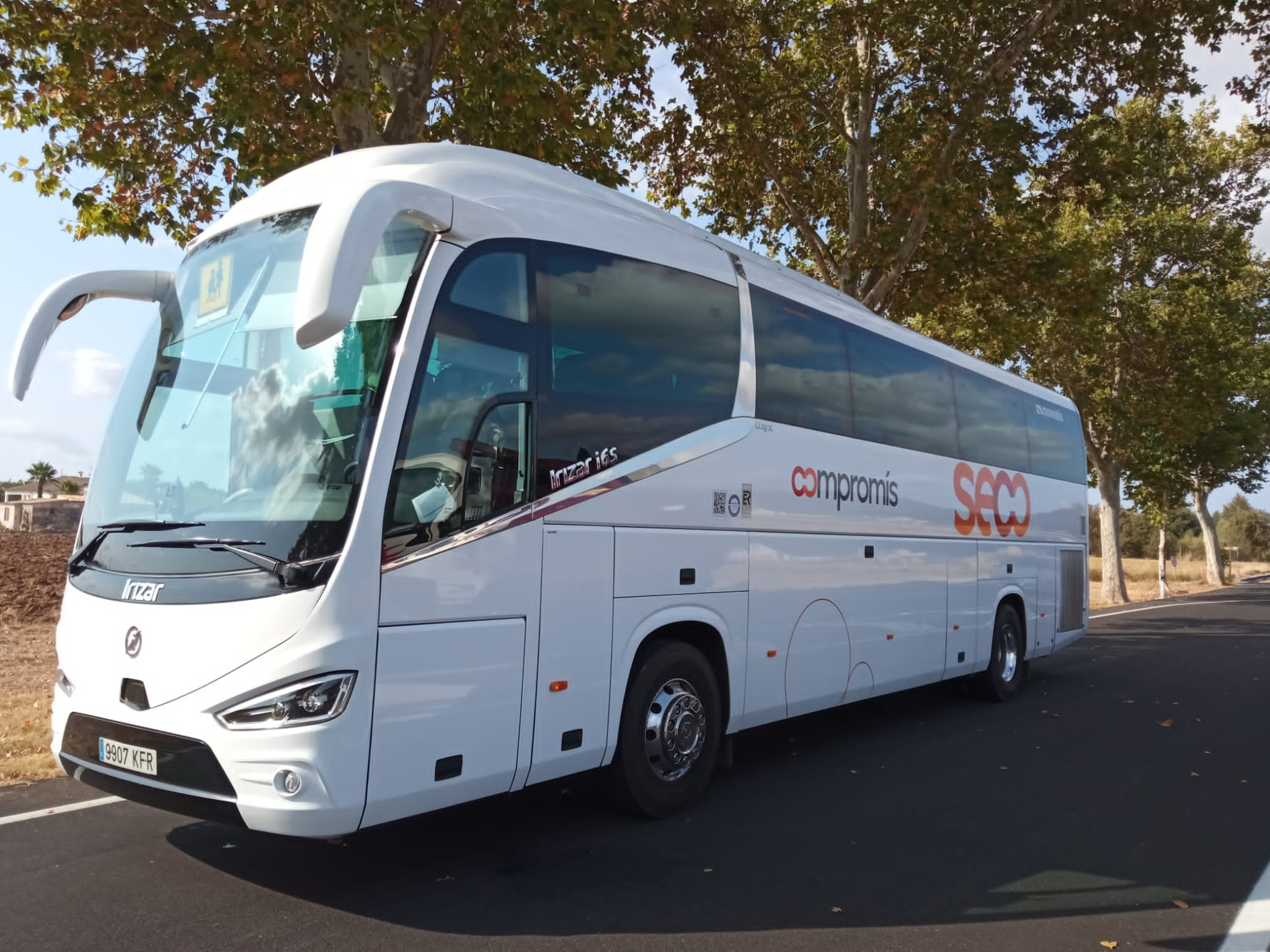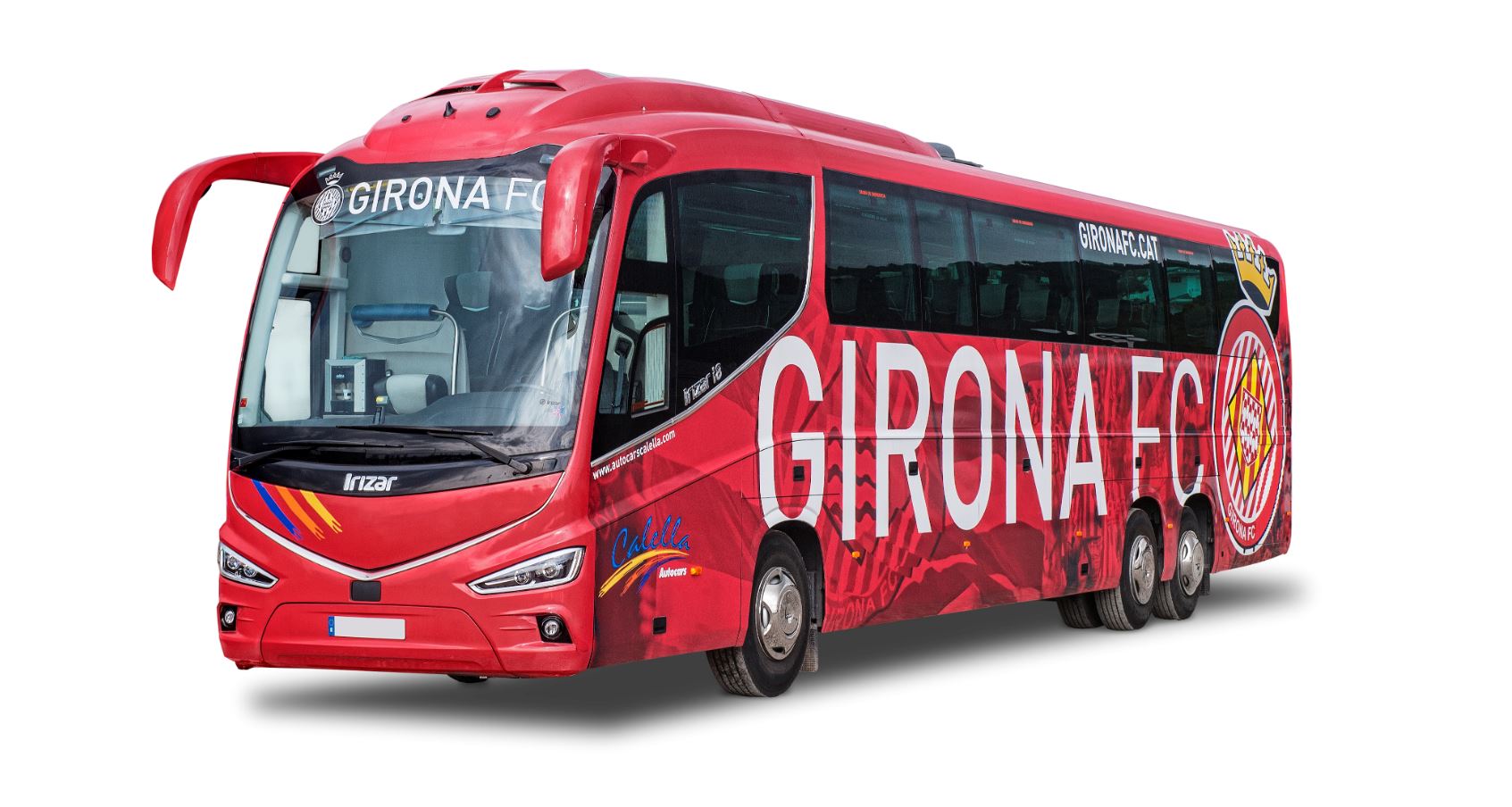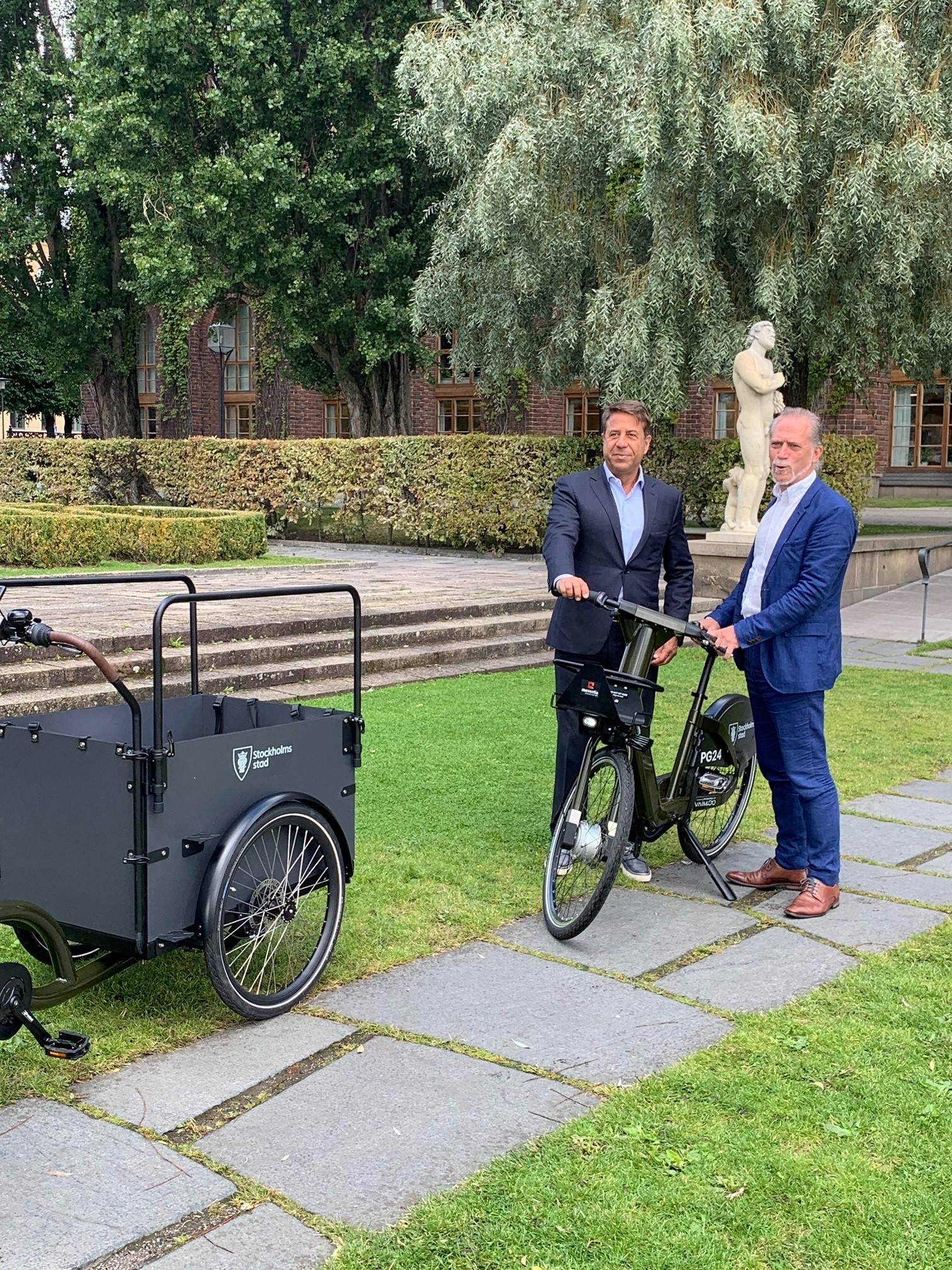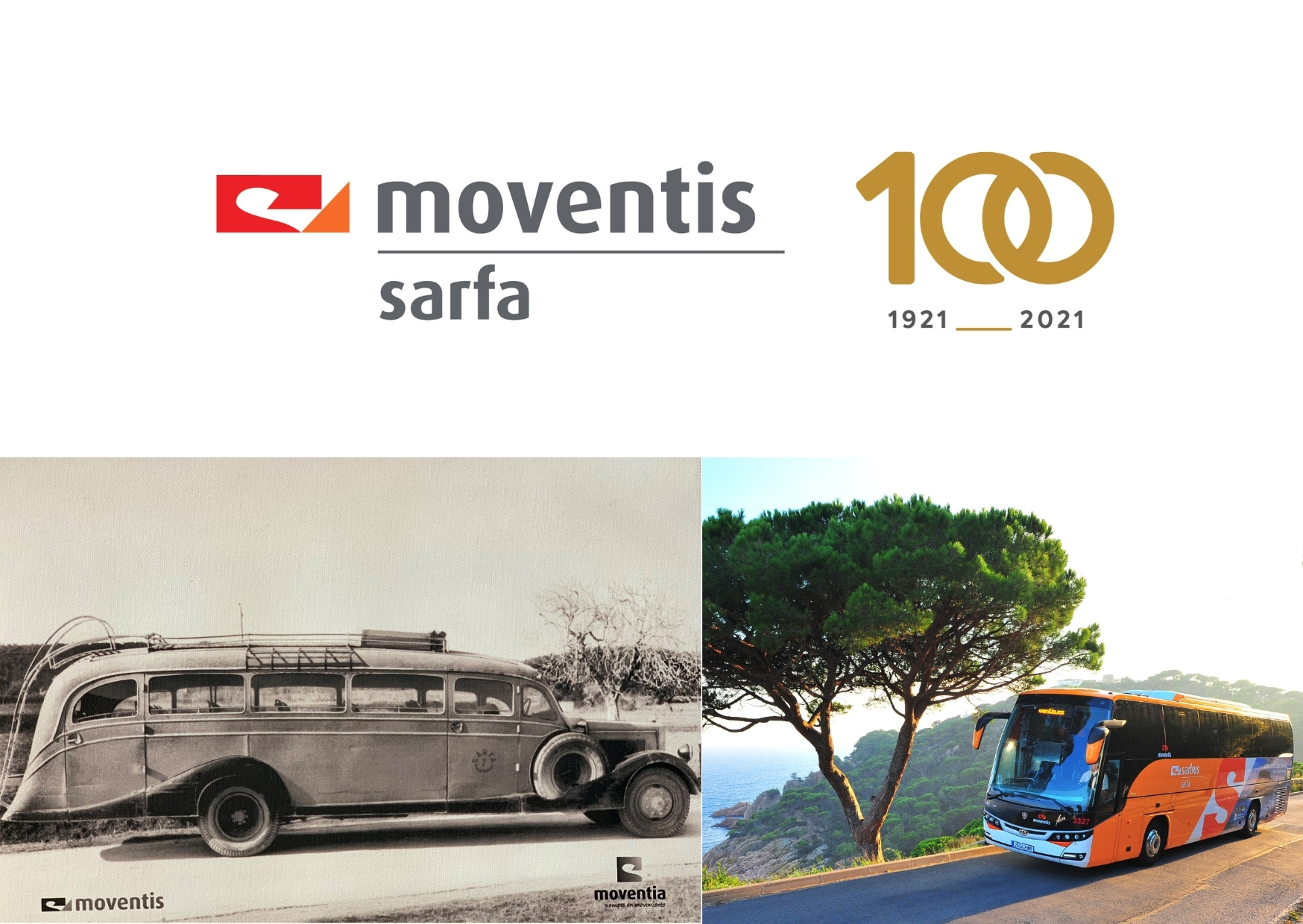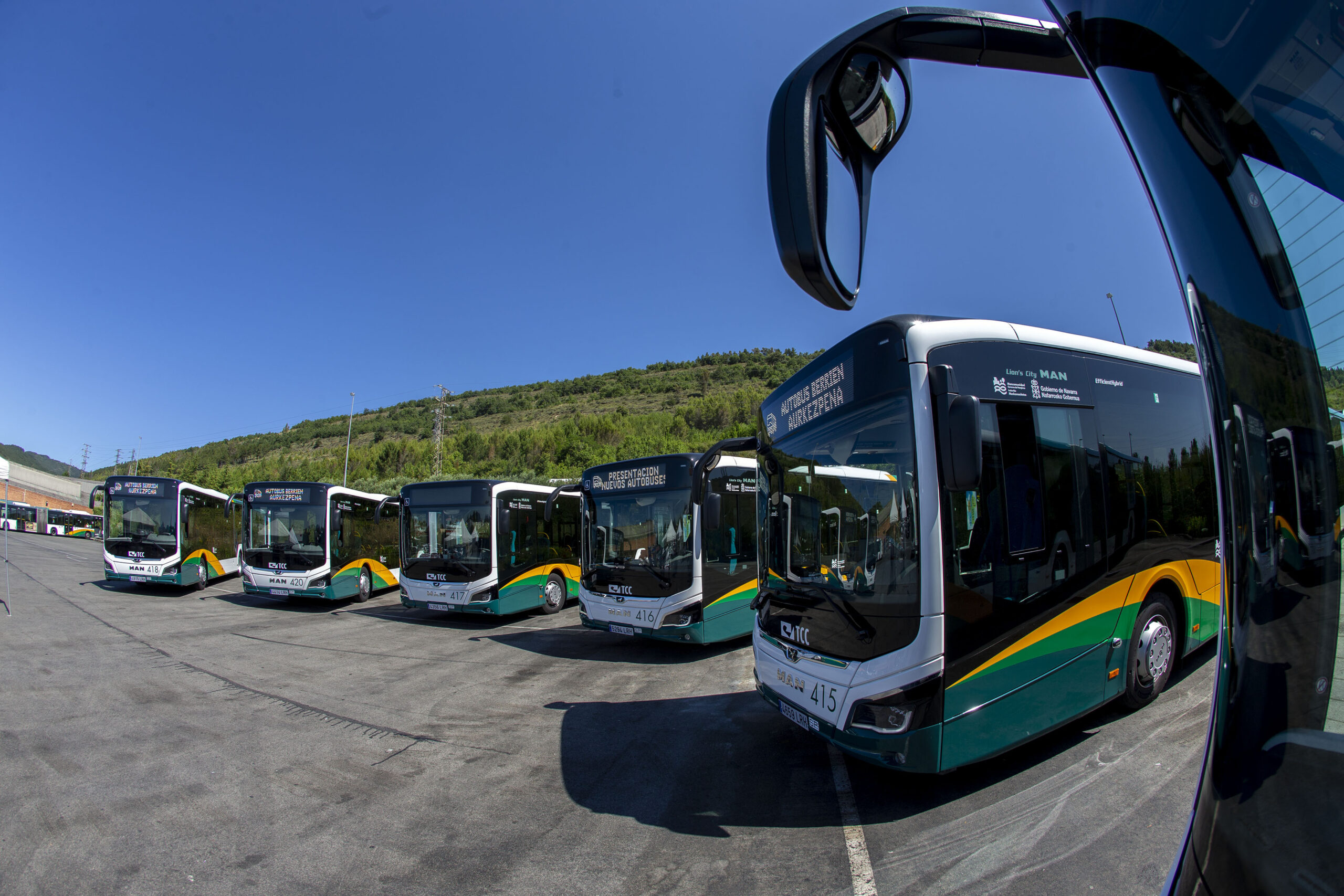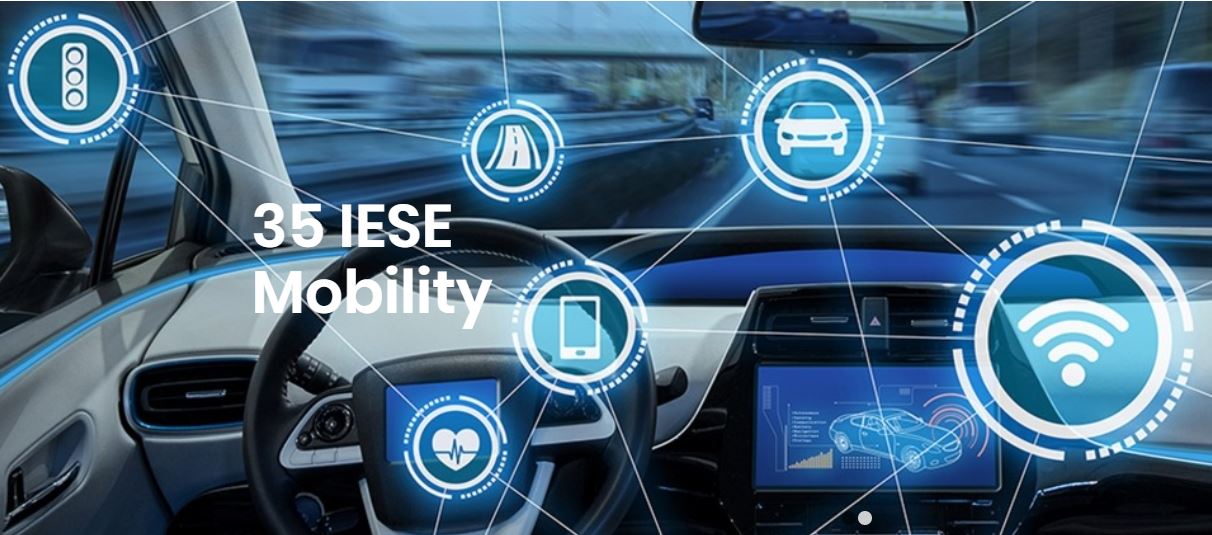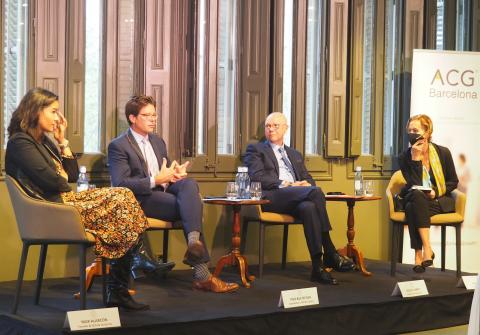- With this investment, the Moventis discretionary services company has renewed 65% of its fleet transforming 25 coaches to compressed natural gas with the ECO seal.
- Autocares Emilio Seco is also starting this second half of the year having renewed its agreement with the Balearic Islands Regional Department of Education to provide school transport services. Likewise, it has signed new contracts as a school and handicapped mobility and transport operator on Majorca.
- The company has unveiled its new more modern and dynamic corporate identity which was inspired by the concept of connectivity and reflects its 50 years of experience in the sector.
Barcelona, September 2021. Autocares Emilio Seco, the Moventis discretionary services company on Majorca, is starting off the second half of 2021 at full speed. The company has become an even stronger sector reference in sustainable mobility after investing 4 million euros into renovating and reconverting its fleet of coaches to make them sustainable.
This investment was used by Autocares Emilio Seco to add 25 compressed natural gas (CNG) hybrid models with the ECO seal. The operation boosted the transformation of its fleet, which is currently comprised of 65% CNG models with the ECO seal, as well as a company action under its commitment to reduce its impact on the environment. This is also a priority goal for the Moventis group which includes Autocares Emilio Seco.
In fact, nearly 50% of the Moventis fleet of buses, coaches, tramways and bikes has been converted into electric, hybrid and natural gas or diesel models that comply with the Euro VI regulation, which is the most recent and restrictive when it comes to reducing contaminating emissions.
Trust in a Company with 50 Years of Experience in the Sector
Autocares Emilio Seco is fully consolidated as a reference in mobility and transport on the Balearic Islands and more specifically on Majorca. Its 50 years of success have earned it the trust of local users and entities who enjoy its services daily.
Thus, the company was able to renew its contract to provide the transport services it had been providing to the Balearic Islands Regional Department of Education. Specifically, it operates 60 routes moving 3,000 boys and girls every day and has done so for 4 years. Added to this are two additional adapted transport services which position Autocares Emilio Seco as the main school and PRM transport operator on the island of Majorca.
The company also recently signed a contract with the Town Hall of Calviá (Majorca) to operate discretionary transport services in that town. These services are for certain groups of residents in the municipality of Calviá such as the elderly, school cultural excursions as well as specific services for people with reduced mobility.
Finally, Autocares Emilio Seco also began school services in September for the Town of Calviá sailing school centres.
Miquel Martí Pierre, Managing Director of Moventis Discretionary Services, said, “A commitment to innovation, excellent service and the environment is in the Moventis DNA. It’s a commitment that moves us to work every single day with all of the group’s companies in order to turn it into a reality. In the case of Autocares Emilio Seco, it’s a step forward as the collective transport leader on Majorca.”
He also said, “The renewed and new contracts for Majorca back our good work and push us to continue working in this strategic line of technology and sustainability.”
A New Corporate Identity as the Symbol of Evolution and Service Excellence
After 50 years, Autocares Emilio Seco now has an all-new more modern and dynamic corporate image with a new logo inspired by the concept of connectivity in conjunction with the idea that mobility connects us. It is also a reflection of the company’s evolution and professionalism in the services it offers customers.
Thus, all Autocares Emilio Seco vehicles and professionals will now sport this new corporate identity which represents the beginning of a new era for the company with its commitment to excellent services and the environment.
In the words of Emilio Seco, Manager of Autocares Emilio Seco, “We’re quite pleased to start this final leg of 2021 with these great new developments considering it’s been a really complicated year for us and the entire sector in general. At Emilio Seco, we have always been close to our customers with a desire to meet their mobility needs by developing innovative environmentally-friendly transport solutions.” He added, “We’re proud to see just how far we’ve got in the last half century and will continue working day after day to ensure our customers can enjoy the best in mobility.”
